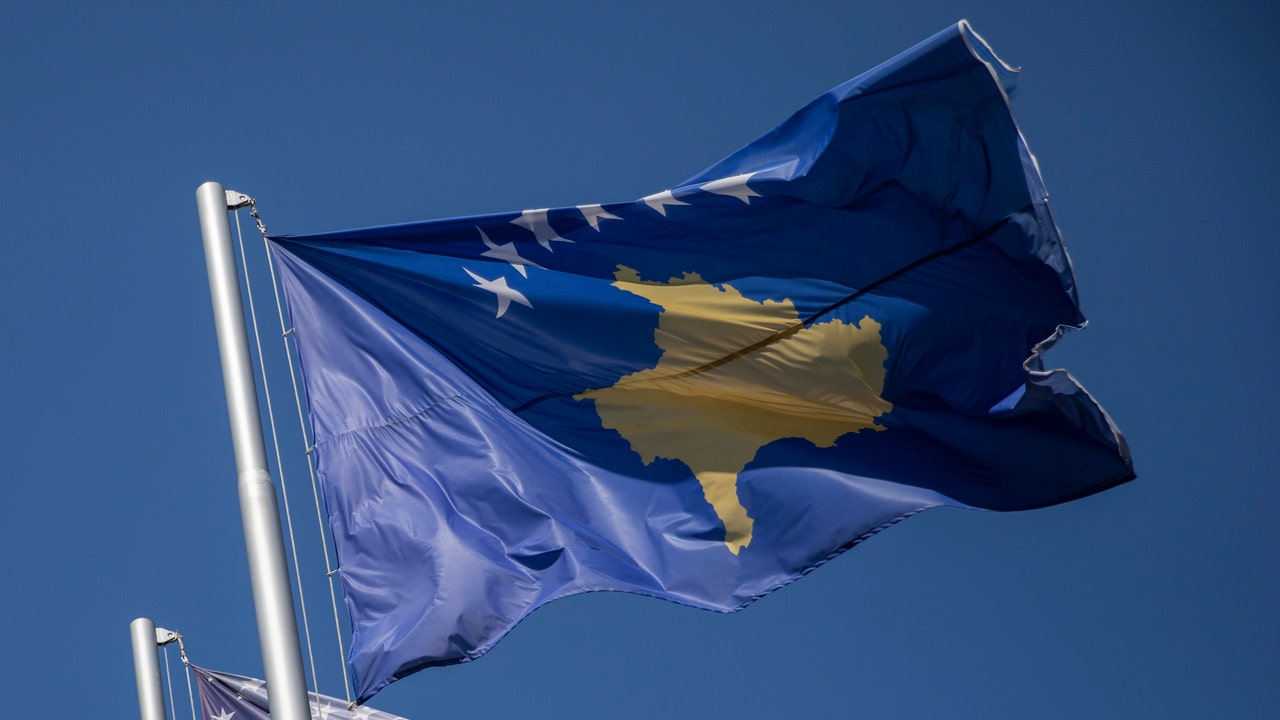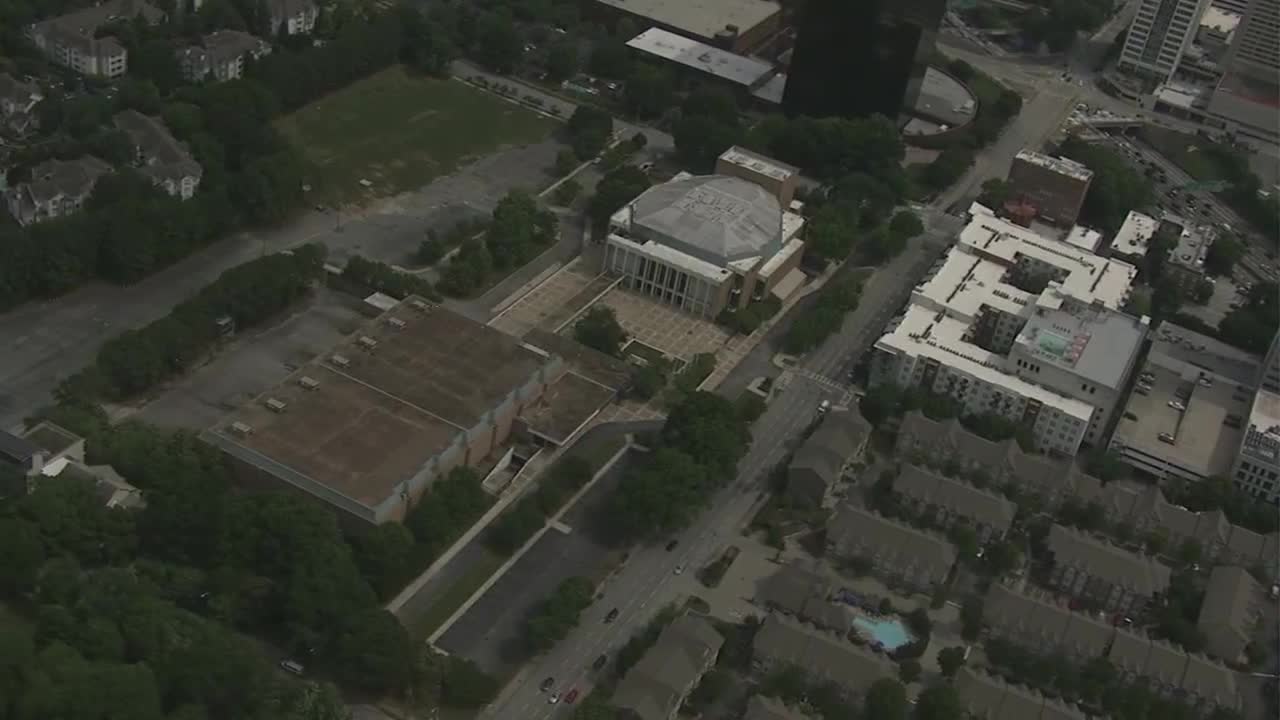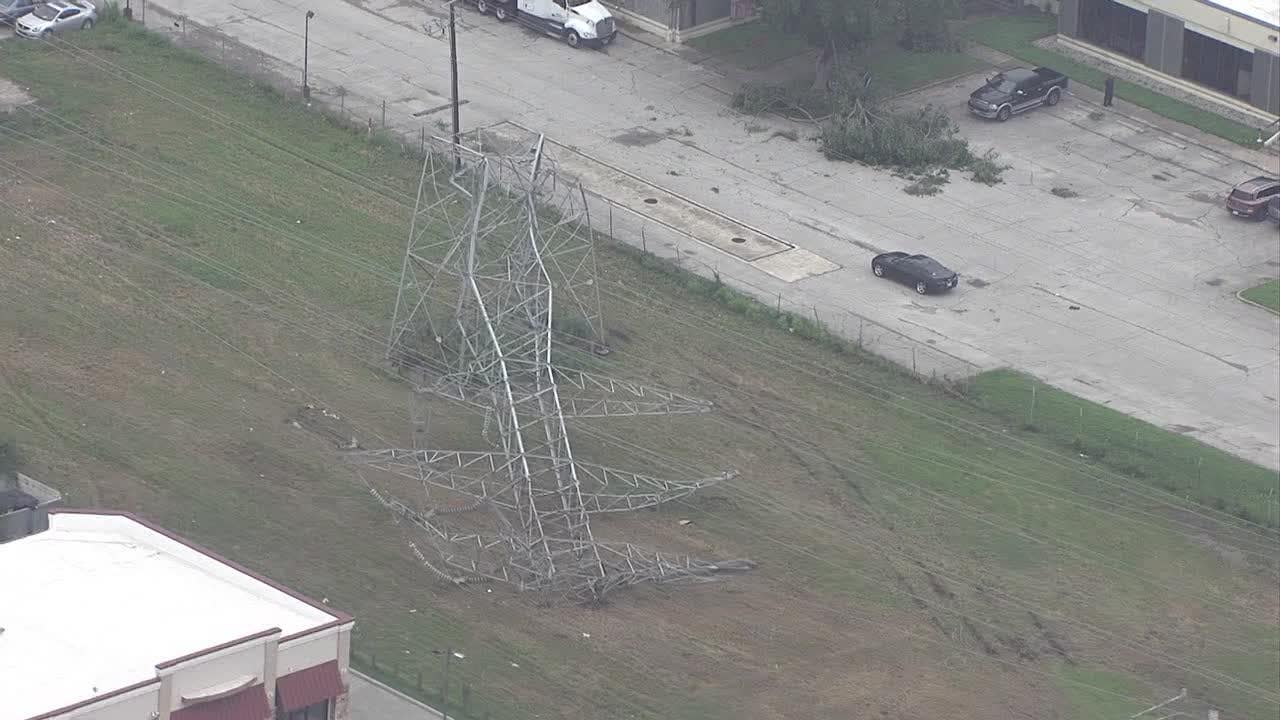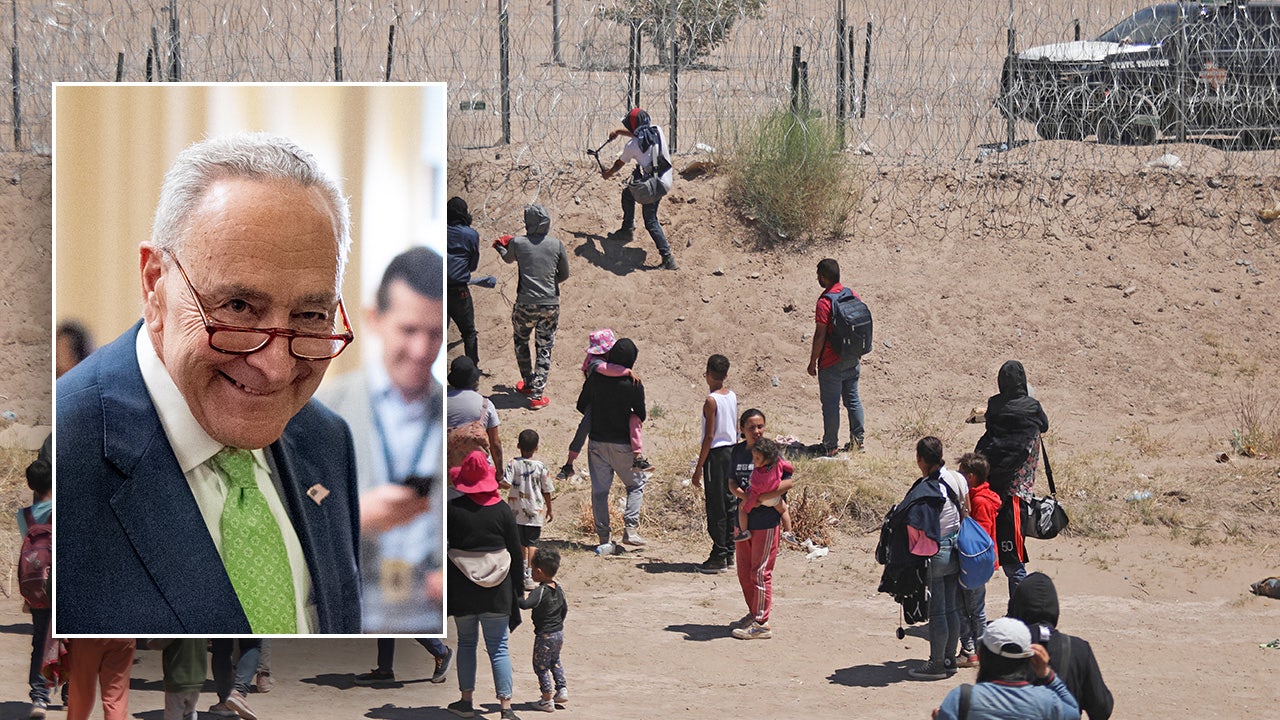World
German football legend Franz Beckenbauer dies aged 78

Beckenbauer captained West Germany to a World Cup victory on home soil in 1974.
Franz Beckenbauer – one of Germany’s greatest football players, who captained the country’s team to World Cup victory in 1974 then won the tournament again as manager in 1990 – has died at the age of 78, his family said.
“It is with deep sadness that we announce that my husband and our father, Franz Beckenbauer, passed away peacefully in his sleep on Sunday, surrounded by his family,” his family said in a statement on Monday.
Known in football-obsessed Germany as “the Kaiser” meaning “the Emperor”, Beckenbauer played a central role in some of the country’s greatest sporting achievements.
Born in Munich in 1945, he helped establish Bayern Munich as his country’s strongest club.
He was a classy, dominant presence on the pitch for West Germany and Bayern Munich in the 1960s and 70s, using the calmness on the ball and effortless distribution that marked his midfield performances to virtually invent the central defensive sweeper role where he found most success.
He collected 103 caps for West Germany, winning the 1972 European championship and then the World Cup on home soil.
His Bayern Munich team was the best club side in the world during the mid-1970s, winning three successive European Cups and three successive Bundesliga titles, and Beckenbauer himself was twice named European footballer of the year.
When he was national team manager, his West Germany team lost in the 1986 World Cup final to Argentina but triumphed four years later in Italy as a combined German team.
After coaching, Beckenbauer moved into football administration. But in 2016 he was fined by FIFA’s ethics committee for failing to co-operate with an inquiry into corruption over the awarding of the 2018 and 2022 World Cups.
Over the next few years, he was engaged in tending to health issues, and the last time he appeared at Bayern Munich’s Allianz Arena was in August 2022, when he attended a match of Bayern Munich against Borussia Monchengladbach.
‘We will miss him’
Tributes have poured in from across Germany and global the football community, honouring Beckenbauer’s legacy.
German Chancellor Olaf Scholz mourned Beckenbauer’s death and said he was one of the greatest footballers in Germany and for many ‘the emperor’ because he “inspired enthusiasm for German football for generations”.
“We will miss him. My thoughts are with his family and friends,” Chancellor Scholz said in X.
Weltmeister als Spieler und Trainer: Franz Beckenbauer war einer der größten Fußballer in Deutschland und für viele „der Kaiser“ – auch, weil er über Generationen für den deutschen Fußball begeistert hat. Er wird uns fehlen. Meine Gedanken sind bei seiner Familie und Freunden. pic.twitter.com/hSEWFfYk7R
— Bundeskanzler Olaf Scholz (@Bundeskanzler) January 8, 2024
“Franz Beckenbauer, one of European football’s greatest sons, has passed away aged 78. ‘Der Kaiser’ was an extraordinary player, successful coach and popular pundit who shaped German football like no other,” the Union of European Football Associations (UEFA) said in a statement.
Germany’s Bundesliga called Beckenbauer “a true icon, then, now, and always” while the English Premier League said “‘Der Kaiser’ was as elegant as he was dominant. He will forever be remembered.”
Rudi Voller, World Cup winner in 1990 and director of the German national team, said it was “one of the great privileges” of his life to “have known and experienced Franz Beckenbauer”.
“Our time together with the national team was crowned with the 1990 World Cup title in Rome, a title that would never have been possible without his outstanding coaching performance,” he said.
“German football is losing its greatest personality; I am losing a good friend.”

World
‘Lone wolf’ or JI?: Jemaah Islamiyah confusion after Malaysia attack

Medan, Indonesia – Malaysia has been the target of a rare deadly attack after a man armed with a machete struck a police station in southern Johor state, killing two police officers and injuring a third.
Initially, Malaysian police said they suspected Friday’s incident was linked to the hardline group Jemaah Islamiyah (JI) and was probably an attempt to steal weapons. Speaking to the media after the attack in the town of Ulu Tiram, Inspector General of Police Razarudin Husain said police raided the suspect’s house and discovered “JI-related paraphernalia”.
Five members of his family were arrested, including the suspect’s 62-year-old father, who police said was a “known JI member”. Two other people, who were in the police station making a report at the time of the attack in the early hours of Friday morning, were also detained.
But on Saturday, Malaysia’s Minister of Home Affairs Saifuddin Nasution Ismail appeared to backtrack on the JI connection, describing the attacker as a “lone wolf” who was “driven by certain motivations based on his own understanding because he rarely mixed with others”.
Former members of JI in Indonesia told Al Jazeera that an attack by the group on Malaysian soil seemed unlikely.
Speaking from prison in Indonesia’s capital Jakarta, where he is serving a life sentence for his role in JI’s 2002 Bali bombing, which killed more than 200 people, Ali Imron told Al Jazeera that JI’s profile in Malaysia did not seem to fit the police station attack.
“There have never been any JI members in Malaysia who agreed to commit acts of violence like this,” he said. “Before the Bali bombing, there were attacks in Malaysia, but these were committed not by JI but Kumpulan Mujahidin Malaysia [KMM].”
KMM, a hardline group linked to JI, carried out small-scale attacks in Malaysia in the early 2000s.
Rueben Dass, a senior analyst at the S Rajaratnam School of International Studies in Singapore, noted that JI had never previously mounted attacks in Malaysia.
“Malaysia was always considered an economic region for JI, not the focus of attacks,” he told Al Jazeera. “The Malaysian authorities were always vigilant and aware, particularly after KMM became active. They have been on their toes and carried out a wave of arrests in the early 2000s of JI members.”
Since then, he said, JI had maintained a low profile.
“To see them coming up again is a little surprising,” he added.
Indonesia, which saw a spate of JI attacks in the late 1990s and early 2000s – including attacks on churches on Christmas Eve 2000, the Bali bombings and the 2003 attack on Jakarta’s JW Marriott Hotel – has also been largely successful in clamping down.
In 2003, with funding and training from the United States and Australia, it established the Counterterrorism Special Detachment 88 (Densus 88), and later set up a National Counterterrorism Agency (BNPT).
Indonesian authorities have also pioneered a range of deradicalisation programmes, using former members of hardline groups including JI, with recidivism rates at about 11 percent, according to the Institute for Policy Analysis of Conflict, a Jakarta-based think tank.
History of JI
JI was founded by Indonesian Muslim scholar Abu Bakar Bashir and Abdullah Sungkar in 1993, with a mission to establish an Islamic caliphate across Southeast Asia.
The group has historically been linked to al-Qaeda, from which it reportedly received funding and training in the 1990s and early 2000s. It has had members in Indonesia, Malaysia, Singapore, Cambodia and the Philippines.
JI was officially banned in Indonesia in 2007, leading to the group splintering. Some members focused on dakwah or proselytisation, while others continued to plot violent attacks. Arrests have continued across the region with members accused of stockpiling weapons and bomb-making equipment.
According to open source data, between 2021 and 2023, out of 610 people arrested In Indonesia, 42 percent were JI and 39 percent were from other hardline groups – including Jamaah Ansharut Daulah (JAD) and other pro-Islamic State groups.
The majority of JI senior figures have been either executed, shot dead in police raids or jailed.
Both Bashir and Sungkar lived in Malaysia in the 1980s and 1990s, in addition to senior members such as Indonesian Encep Nurjaman (alias Hambali) and Malaysians Noordin Mohammed Top and Azahari Husin. Ali Ghufron (alias Mukhlas), Amrozi bin Nurhasyim and Imam Samudra, the masterminds of the Bali bombing, also spent time in Malaysia.
Hambali was arrested in Thailand in 2003 and is currently awaiting trial at Guantanamo Bay in Cuba, while Samudra, Amrozi and Mukhlas were executed in 2008. The two Malaysians were shot in separate police raids in Indonesia in 2005 and 2009.
Before his death, Noordin ran the Luqmanul Hakiem Islamic boarding school in Malaysia, which was founded by Bashir and Sungkar and was in Ulu Tiram, close to the home of the suspect of Friday’s attack.
Malaysia closed the school in 2002 amid suspicions it was being used to recruit people to JI.
Style of attack
While the profile of the suspect’s father, and the proximity to Luqmanul Hakiem, might have suggested a JI connection, Imron cautioned against such an analysis.
“If the son followed his father, there is no way he would have committed this act, so there is a strong possibility that he was inspired by ISIS [ISIL],” Imron said, suggesting the Malaysian authorities had “jumped to that conclusion.”
Umar Patek, who was released from prison in 2022 after serving 11 years of a 20-year sentence for mixing some of the chemicals used in the Bali Bombing, told Al Jazeera that he “did not believe” that the attacker was a member of JI and agreed that the attack appeared to have the hallmarks of another group.
“I am very doubtful,” he said. “I don’t understand it, especially carrying out a violent attack. It is impossible in my view that it was JI, but it is possible that it was ISIS.”
The style of the attack has added to the scepticism, as the targeting of a police station and Muslim police officers is inconsistent with JI’s attacks in Indonesia. There, it has been ISIL-inspired hardline groups, including JAD, that have attacked police stations, seeing them as representative of the state.

Judith Jacob, the head of Asia for the risk analysis and intelligence company Torchlight, told Al Jazeera that the most unusual aspect of Friday’s attack was the location.
“While Malaysian militants have been key figures in JI and Philippine-based groups, there are few indications of sophisticated plots targeting Malaysia specifically in recent years,” she said.
However, while Malaysia and Indonesia have not seen anything like the levels of violence of the early 2000s, attacks have not been completely eradicated – with a pattern of more opportunistic and low-level violence emerging.
“The attack in Malaysia remains squarely within the wheelhouse of regional Islamist militant groups – that is to say, it is a relatively unsophisticated assault,” Jacob said.
“Indonesian groups, in particular, have been largely unable to conduct the large-scale attacks or coordinated bombings that were a hallmark of JI in its heyday in the 2000s. Militant groups in the Philippines are more capable, but they too have been unable to conduct sophisticated bombings beyond the southern islands.”
World
Live Updates: ‘Technical Failure’ Caused Helicopter Crash That Killed Iran’s President, State News Agency Reports
The deaths of Iran’s president, Ebrahim Raisi, and foreign minister left the country without two of its most influential figures at a moment of regional and domestic tumult. Funeral services will be held in three cities from Tuesday through Thursday, the state media said.
World
Denmark turns to Kosovo to alleviate its overcrowded prison system in $217 million deal

Kosovo’s Cabinet renewed efforts with a new draft law on renting a prison in the south of the country to Denmark to help it cope with its overpopulated prison system, an official said Monday.
The first draft of the law failed to pass at the parliament last week. But on Sunday, the Cabinet approved a draft law on 300 cells at the prison in Gjilan, 50 kilometers (30 miles) south of the capital Pristina, to be rented to Denmark, based on a a 10-year agreement that the two governments signed in April and May 2022, government spokesman Perparim Kryeziu said.
FORMER KOSOVO INFRASTRUCTURE MINISTER GETS 44 MONTHS FOR OVERSPENDING ON ROAD PROJECT
“The Cabinet approved it (the draft law) again yesterday (Sunday) so that it passes on to the Assembly (the parliament) to be voted on again,” he said.
An official in Kosovo says the Cabinet has renewed efforts with a new draft law on renting a prison in the south of the country to Denmark to help it cope with its overpopulated prison system. (Photo by Ferdi Limani/Getty Images)
Last week, the draft law got 75 votes, not reaching at least 80, or two-thirds of the 120-seat parliament as required to pass.
Kosovo will be paid 200 million euros ($217 million) that will be spent on the country’s correctional institutions and renewable energy projects.
According to the plan, Denmark won’t be able to send inmates convicted of terrorism or war crimes, or mentally ill prisoners. A Danish warden will run the 300-cell facility, accompanied by an Albanian one and other local staff.
Kosovo’s prison system has a capacity of up to 2,800. It wasn’t immediately possible to find out the current number of vacancies.
Neighboring Albania has agreed to hold thousands of asylum-seekers for Italy.
-

 News1 week ago
News1 week agoSkeletal remains found almost 40 years ago identified as woman who disappeared in 1968
-

 Movie Reviews1 week ago
Movie Reviews1 week ago“Kingdom of the Planet of the Apes”: Disney's New Kingdom is Far From Magical (Movie Review)
-

 World1 week ago
World1 week agoIndia Lok Sabha election 2024 Phase 4: Who votes and what’s at stake?
-

 World1 week ago
World1 week agoUkraine’s military chief admits ‘difficult situation’ in Kharkiv region
-

 Politics1 week ago
Politics1 week agoTales from the trail: The blue states Trump eyes to turn red in November
-

 World1 week ago
World1 week agoBorrell: Spain, Ireland and others could recognise Palestine on 21 May
-

 World1 week ago
World1 week agoCatalans vote in crucial regional election for the separatist movement
-

 Politics1 week ago
Politics1 week agoNorth Dakota gov, former presidential candidate Doug Burgum front and center at Trump New Jersey rally













